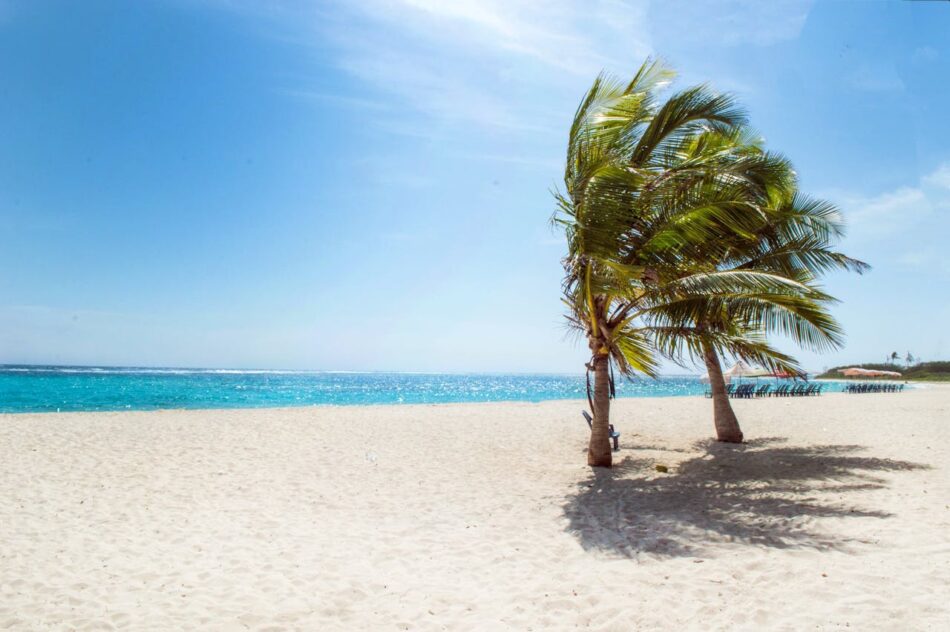Practical Tips for Navigating Bureaucracy When Moving to the Caribbean

Moving to the Caribbean can be an exciting adventure, but it also comes with its share of bureaucratic problems. From obtaining visas to setting up local services, the process requires careful planning and attention to detail. Being well-prepared can save you time and stress. This guide provides practical tips to help you navigate the complex bureaucracy when relocating to the Caribbean. If you follow these suggestions, you can handle the paperwork and procedures more efficiently, allowing you to enjoy your new life on the islands. Let’s explore some essential steps to make your move as seamless as possible.
Essential Steps List for Moving to the Caribbean Adventure
We know you are overly excited to move to the wonderful Caribbean. However, if you have never been there before and are relocating from a different state—like Miami—maybe you should hire miamimoversforless.com to handle the relocation. They are a skilled team dedicated to providing high-standard moving services and offer everything from local to interstate moving to packing and storage services. In the meantime, find some time to sit down and read the following practical tips for your upcoming move:
- Start researching early
- Hire local experts
- Organize and notarize documents
- Understand residency requirements
- Establish financial stability
Are you ready to start your adventure? Let your movers do their job, and learn all about the technicalities.


If you manage your bureaucratic issues, the move to the Caribbean will be a lifetime adventure
Research and Prepare Early
The first step in navigating bureaucracy is to start early. Research the specific requirements for your destination, as each Caribbean country has its own set of rules. Make a checklist of necessary documents, including visas, work permits, and residency applications. Reach out to consulates or embassies for the most accurate information. It’s also beneficial to connect with expatriate communities online, as they can provide valuable insights and firsthand experiences. Preparing early gives you more time to gather all required documents and address any unexpected issues that may arise.
Engage with Local Experts
Hiring a local attorney or relocation specialist can be invaluable when moving to the Caribbean. These professionals understand the local laws and can guide you through the process, helping you avoid common pitfalls. They can assist with everything from property purchases to setting up a business. Engaging with local experts ensures you comply with all regulations and can save you from costly mistakes. Additionally, they can provide insights into local customs and practices, making your integration smoother. Their expertise can be a significant advantage in navigating the complex bureaucratic landscape.
Organize Your Documents
Keeping your documents organized is very important. Create a dedicated folder for all your paperwork, both digital and physical. Ensure you have multiple copies of essential documents, such as birth certificates, marriage licenses, and financial records. Notarize and translate documents if required. An organized system will help you quickly access necessary paperwork when dealing with officials. Also, consider keeping a log of all interactions with government offices, including dates, names, and outcomes. This can be helpful if any issues arise. An organized approach to documentation can significantly reduce stress and streamline the bureaucratic process.


Make sure your documents are ready before moving to the Caribbean
Understand Local Residency Requirements
Each Caribbean nation has unique residency requirements, including proof of income, health insurance, and background checks. Some islands offer special visas for retirees and digital nomads. Research these options to see if you qualify. Understanding the specific residency requirements for your destination will help you gather the necessary documents and prepare your application accurately. Stay informed about any changes in immigration laws that might affect your status. Meeting residency requirements is a critical step in establishing your new life in the Caribbean, and thorough preparation is key to success.
Establish Financial Stability
Opening a local bank account and understanding the tax obligations in your new country are important steps. Some Caribbean nations have favorable tax policies for expatriates, but it’s important to know the details. Consult with a tax advisor to ensure you comply with both local and international tax laws. Establishing financial stability early on will facilitate transactions and make daily life easier. Additionally, having a local bank account can be a requirement for obtaining residency or work permits. Financial preparedness is a cornerstone of a successful move to the Caribbean.
Learn the Language
If the primary language of your Caribbean destination differs from your native language, learning the local language can significantly ease your transition. Go to language classes or use language learning apps to improve your proficiency. Understanding and speaking the local language helps in daily interactions and can make bureaucratic processes smoother. Officials and locals will appreciate your effort, which can expedite the handling of paperwork and other formalities. Additionally, language skills enhance your ability to integrate into the community and navigate local services, like ordering food at z restaurant. Being proactive about language learning is a valuable step toward a successful relocation.


If you don’t know the local language, find a teacher to help you master it
Build a Local Network
Building a local network is vital for navigating bureaucracy in the Caribbean. Connect with expatriates and locals through social media groups, community events, and professional networks. These connections can provide support, advice, and firsthand information about dealing with local bureaucracy. They can also recommend reliable service providers, such as attorneys, accountants, and real estate agents. A strong local network can help you resolve issues more quickly and efficiently. Furthermore, integrating into the community can make your experience more enjoyable and fulfilling. A robust support system is invaluable when adapting to a new environment and its bureaucratic challenges.
Getting to Know the Caribbean
The Caribbean is renowned for its stunning beaches, vibrant cultures, and diverse histories. Comprising over 7,000 islands, islets, reefs, and cays, it offers something for everyone. There are bustling markets of Jamaica and the tranquil, turquoise waters of the Bahamas. The region is a melting pot of cultures, influenced by African, European, and indigenous traditions, resulting in a rich tapestry of music, cuisine, and festivals. The Caribbean is home to the largest coral reef system in the Atlantic, making it a paradise for snorkelers and divers. Notable sites include the UNESCO-listed Brimstone Hill Fortress in Saint Kitts and Nevis and the mystical El Yunque Rainforest in Puerto Rico. Each island boasts its own unique charm, inviting exploration and adventure.
Final Thoughts on Navigating Bureaucracy When Moving to the Caribbean
Moving to the Caribbean involves navigating a maze of bureaucratic processes, but with careful preparation and the right resources, it can be manageable. Starting your research early, engaging with local experts, keeping your documents organized, understanding residency requirements, and establishing financial stability are all crucial steps. By following these tips, you can handle the bureaucracy more effectively and focus on enjoying your new life in the Caribbean. Proper planning and diligence will ensure a smoother transition and help you settle into your new home with confidence and ease.
ALL IMAGES: pexels
Focus keyphrase: moving to the Caribbean
Meta description: Consult this article if you are currently moving to the Caribbean, provided by IEyeNews, for the latest news and updates.




